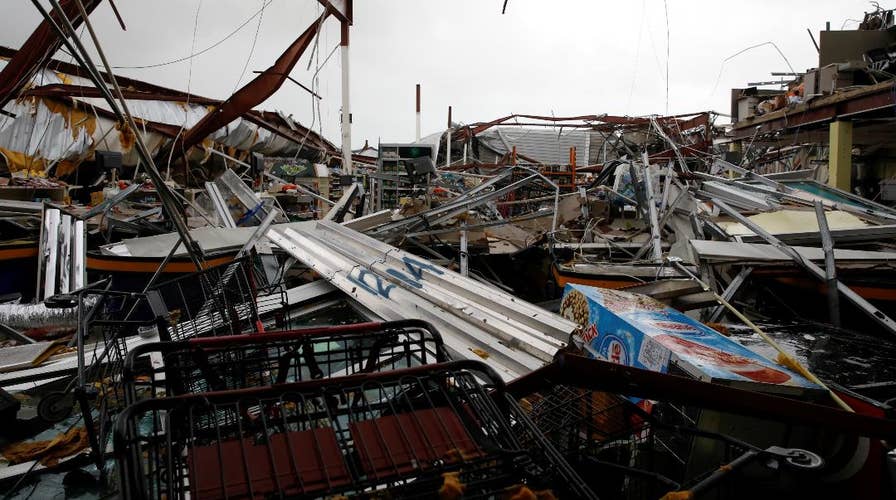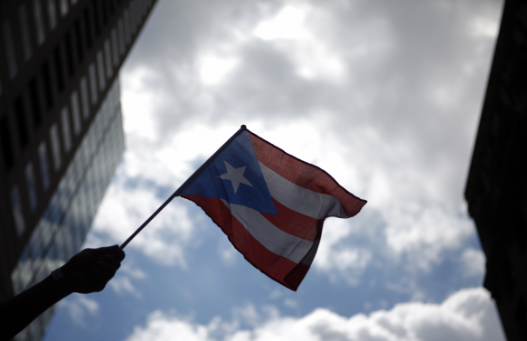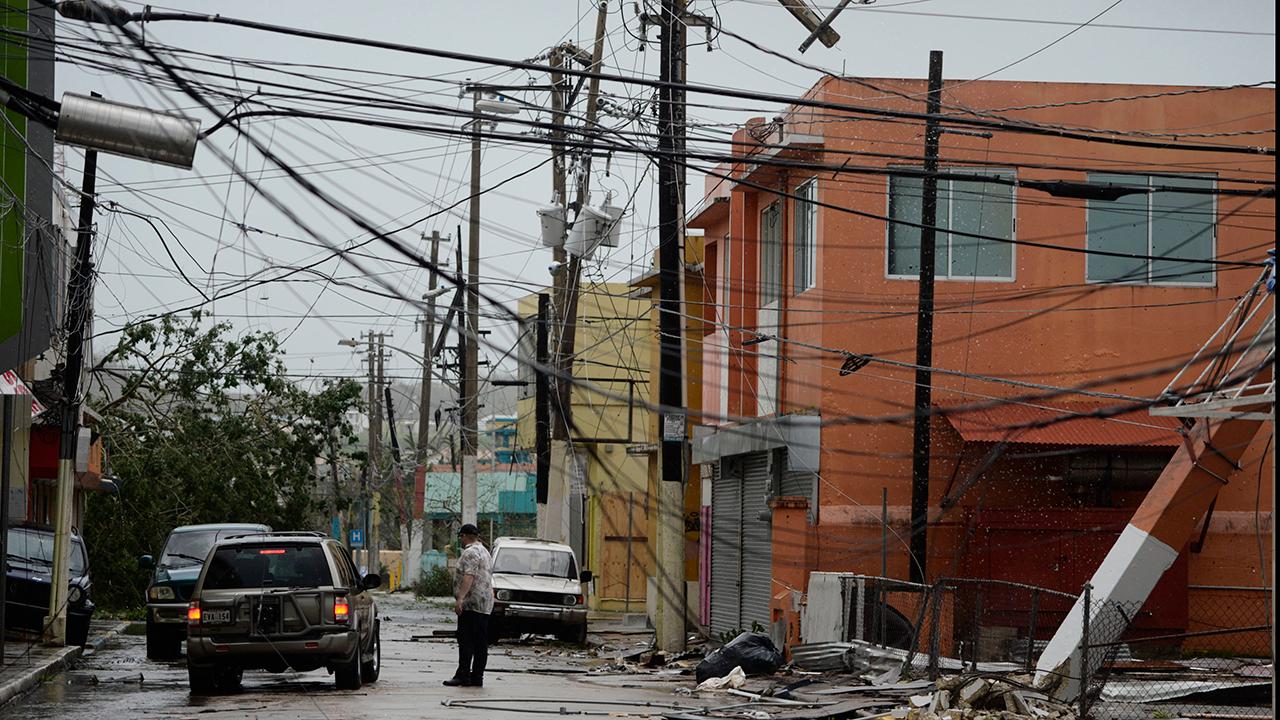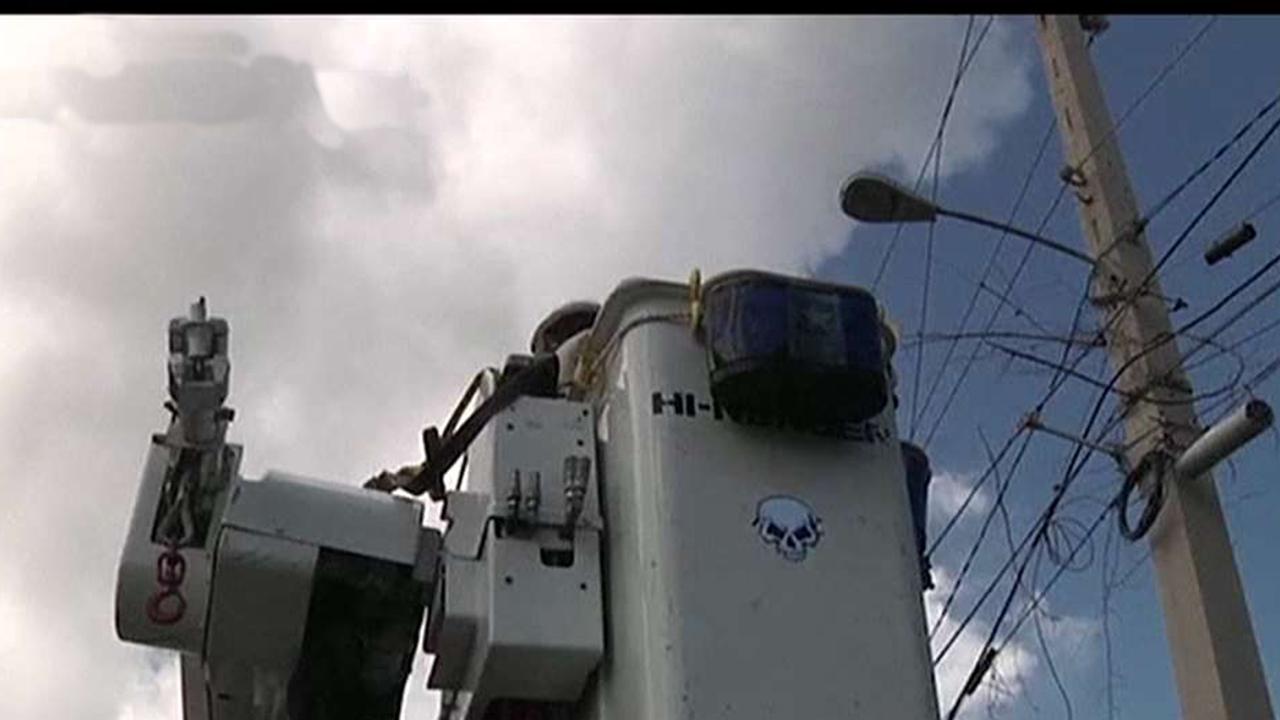Hurricane Maria aftermath: Puerto Rico faces months without power
The entire island of Puerto Rico is without power, after Hurricane Maria slammed into the U.S. territory. Officials estimate that it could take months for the island to be restored. Check out these incredible images of the storm and its aftermath.
Six months after Hurricane Maria slammed into Puerto Rico, many leaders there are pointing the finger at Washington, but the scandal, corruption and waste that now plague the U.S. territory were around long before last summer's storm.
Decades of dysfunction, mismanagement and embarrassing abuses of power left Puerto Rico reeling well before the storm delivered a knockout blow, say obervers. Enormous debt, absurd infrastructure projects and a tradition of corruption have hampered the commonwealth's ability to get off the canvas.
“There’ve been so many problems that have built up year after year,” Rep. Ron DeSantis, R-Fla., told Fox News. “It’s a tough situation.”
“All these mayors were using borrowed money to build things that were underutilized.”
Reckless spending sprees by a revolving door of politicians have turned the commonwealth into a bloated bureaucracy that can’t pay its bills and yet enjoys the benefits of a welfare society without any of the responsibilities attached to it.
Before Maria hit in September, Puerto Rico was already navigating the biggest bankruptcy in U.S. government history at a whopping $120 billion in combined bond and pension debt.
For years, the island blew through billions of dollars in borrowed money.
Pricey and impractical infrastructure projects almost always got the go-ahead.
“Every town in Puerto Rico has a new baseball park," Emilio Pantojas-Garcia, a sociology professor at the University of Puerto Rico, Rio Piedras, told Bloomberg News. “All these mayors were using borrowed money to build things that were underutilized.”
One such project was a 1,000-seat performing-arts center in the small city of Humacao. The building was designed for big-budget Broadway-style performances. Instead, it was rarely used and ended up being the place where the occasional stand-up comic performs.
The territory’s towering debt and mismanagement also led to less money being available for schools and hospitals.
Then Maria hit and things on the island went from bad to catastrophic in the blink of an eye.
Multiple cases of corruption and greed by local leaders, government officials and inexperienced contractors surfaced, shedding light on the toxicity that is still very much a part of everyday life in Puerto Rico.
Those who can leave, often do.
The government of Puerto Rico now estimates that by the end of the year, another 200,000 residents will have moved to the mainland.
But for residents stuck in Puerto Rico, the future looks grim.
“We’re used to it by now but that doesn’t make it right or fair,” Sunita Howell, a waitress in Old San Juan, told Fox News. Howell’s family, who lives in the Hato Rey neighborhood of the city, struggles daily.
Howell says after Maria hit, her family was approached by someone offering to restore power to their home for $3,000.
“I don’t have that kind of money,” she said. “Who has that here? You are supposed to be helping us not taking our money.”
The Puerto Rico Electric Power Authority - PREPA- has already suspended three employees without pay and says it is looking into another 25 reported cases of possible bribery in the days and weeks after Maria.
PREPA confirmed to PBS that all of the cases involve field employees responsible for restoring power.
El Vocero, a San Juan-based newspaper, said that some employees demanded up to $5,000 to reconnect power.
PREPA’s director was forced out in November after the utility, the commonwealth’s sole electricity provider, failed to call for help from its mainland counterparts after the storm.
Instead, PREPA granted a power-restoration contract to Whitefish Energy Holdings. It was a disaster of a deal and PREPA was forced to rescind the contract after public pressure.
PREPA was also accused of stockpiling supplies badly needed to help with rebuilding after Maria.
“The Puerto Rico Electric Power Authority has become a heavy burden on our people, who are now hostage to its poor service and high cost,” Governor Ricardo Rossello, who is planning to sell PREPA to the private sector, said in a statement. “What we know today as the Puerto Rico Electric Power Authority does not work and cannot continue to operate like this.”
PREPA’s problems are just one of several crises slowing down recovery on the island.
The federal government recently awarded a $156 million contract to a one-person Atlanta-based company that was supposed to deliver 30 million meals to Puerto Rico. Owner Tiffany Brown, who had no disaster relief experience, got the gig but managed to deliver only 50,000 meals to the storm-ravaged island.
There have been problems with the housing situation too and now, the island’s largest restoration contractor says it will pull out of Puerto Rico in the next few weeks after maxing out its $746 million contract.
“It never ends,” Howell said. “Tomorrow I’ll wake up and there will be another scandal, another Whitefish.”




























